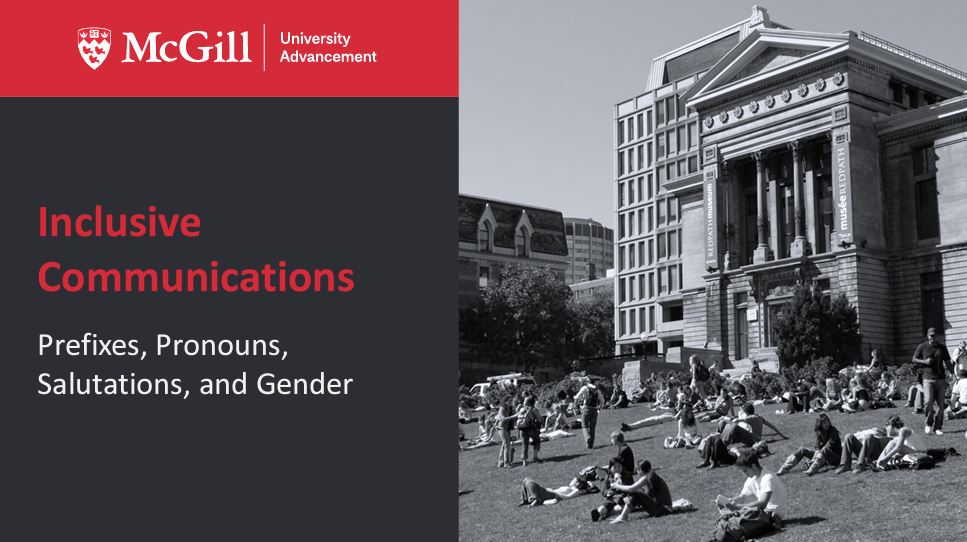
Inclusive Communications Project (Prefix, Pronoun, Salutations and Gender)
From the Nominator
"In our day-to-day lives, we often make unconscious assumptions about a person’s identity based on their name, appearance, or other cues. When incorrect, assumptions like these can make people feel excluded and lead to damaged relationships.
McGill University Advancement (UA) launched an inclusive communications project to help eliminate assumptions and barriers in interactions with McGill constituents. The objective is to allow graduates, donors, volunteers, students, parents, and friends to freely express their identities and tell McGill how they wish to be addressed. In practice, the project involves updating how UA collects, stores and uses data relating to prefixes, pronouns, salutations and gender. Changes to UA's data collection methods and updates to internal systems include:
• Recording pronouns
• Flagging deadnames
• Allowing any prefix to be used with any gender
• Making prefixes optional and adding Mx. as a gender-neutral option
• Offering a non-binary gender option
• Distinguishing between primary name for communications and legal name for tax purposes
• Ending the male-first default in joint salutations (when addressing couples)
• Removing gender and making prefixes non-mandatory on forms
• Generating salutations without prefixes
By changing how data is collected and used, and by educating staff on how to integrate these changes into their daily work, we are promoting greater inclusiveness at McGill and helping ensure that our over 300,000 constituents worldwide feel a sense of belonging when they interact with the university."
From the Judges
In seeking to address an issue relating to gender inclusivity, this team set themselves on a highly collaborative journey. The result was a co-designed system that was reflective of the perspectives of the LBGTQI+ community. The project was distinct because it went beyond the alumni database. By working across the organization, the team was able to ensure the inclusive communications became the standard for students, too.